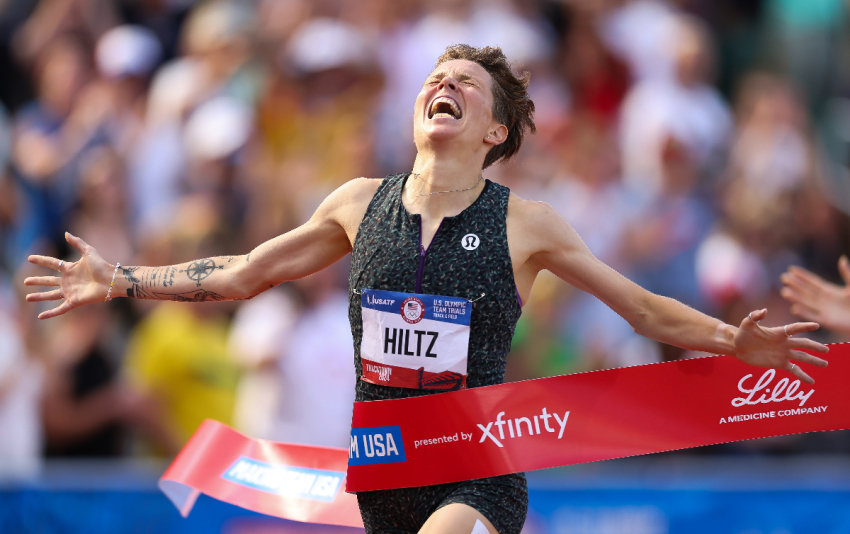Trans runner Nikki Hiltz qualifies for Paris Olympics after placing first at US trials

Nikki Hiltz, a female and United States middle-distance runner who is trans-identified and nonbinary, has qualified for the Olympic Games in Paris, France.
Hiltz, a 29-year-old who uses they/them pronouns, finished first at the women's 1,500-meter race at the U.S. Olympic Trials on Sunday. She recorded the second-fastest time of any American in the trails, 3:55:33.
"This is bigger than just me. It's the last day of pride month. ... I wanted to run this one for my community," Hiltz said after the race, according to NBC News. "All the LGBT folks, yeah, you guys brought me home that last hundred [meters]. I could just feel the love and support."
Second place in the 1,500-meter race was Emily Mackay, who also qualified for the Paris Olympics. Third place went to Elle St. Pierre, who competed in the Tokyo Olympics.
Hiltz came out as nonbinary and trans-identified via an Instagram post on March 31, 2021, which marks the annual LGBT observance known as the Transgender Day of Visibility.
In a column published by Runners World in April 2021, Hiltz said that when she turned 6 years old, she had wished that "I would wake up a boy."
"Six-year-old me expressed my gender identity through having short hair, wearing baseball caps, and refusing to wear dresses," wrote Hiltz. "I felt most like myself when I was playing football with the boys during recess, when my dad called me Nick instead of Nikki, and when the substitute teachers would mistake me for a boy."
"Growing up, sports was a place I felt like I could be most like myself. On the playing field it didn't matter if I was a girl or a boy. I ran fast, and kids always respect the fast kid, regardless of gender."
In December 2022, regarding the participation of trans-identified athletes, the International Olympic Committee released a document calling for a "sport-by-sport basis" in which "stakeholders should be guided by each of fairness, inclusion and non-discrimination when considering whether and how to introduce eligibility criteria for sex-segregated competition."
Last month, a three-judge panel of the Court of Arbitration for Sport ruled that Lia Thomas, a biological male who had broken women's swimming records after previously competing on the University of Pennsylvania's men's swimming team for three years, was ineligible to participate in the Olympics.



























